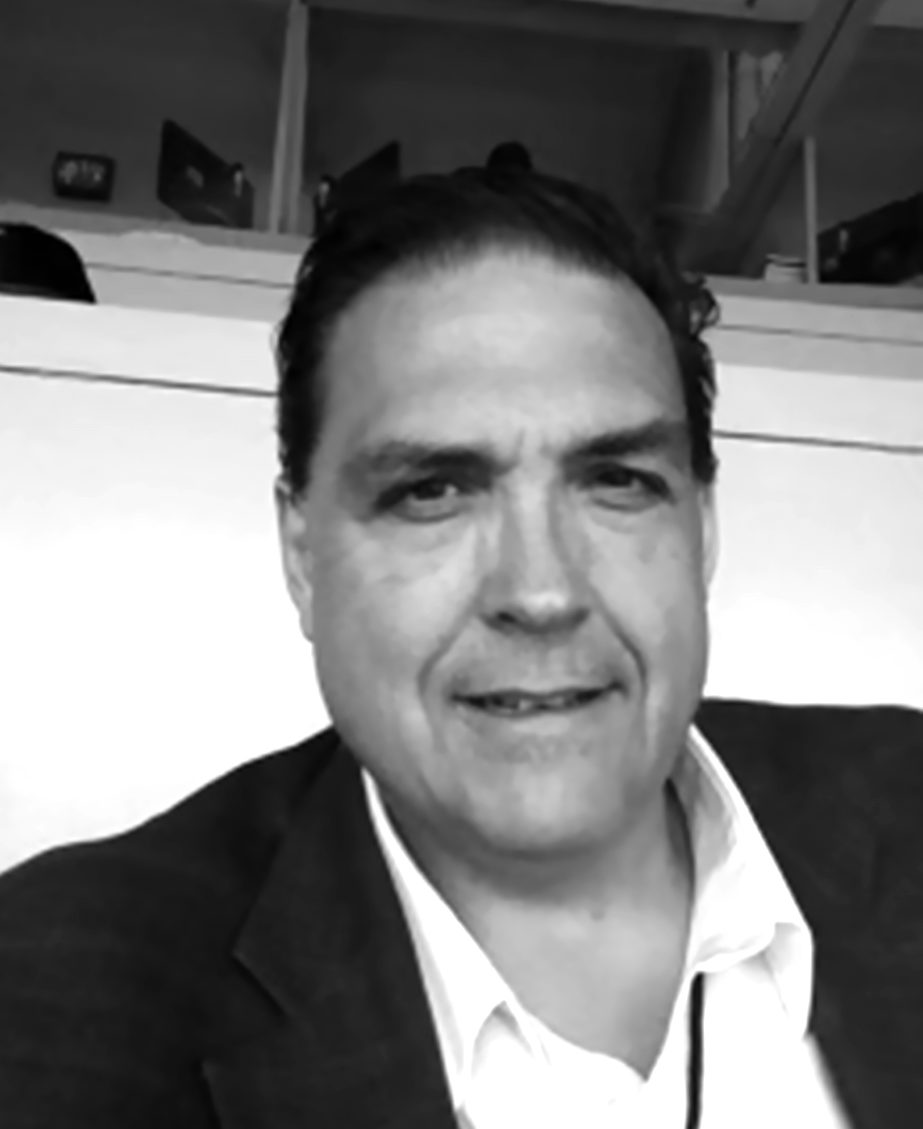“But why had he always felt so strongly the magnetic pull of home, why had he thought so much about it and remembered it with such blazing accuracy, if it did not matter, and if this little town, and the immortal hills around it, was not the only home he had on earth? He did not know. All that he knew was that the years flow by like water, and that one day men come home again.”
― Thomas Wolfe.
David Freese returns to Busch Stadium, returns home, to be honored before a Tuesday-night baseball game and celebrate a lifetime of memories. This son of St. Louis has known glory, and he’s known pain, and he knows that glory can cause pain. All of this has been reconciled. Welcome home, Dave.
After taking on depression and draining alcohol out of his life Freese is older and wiser and blissfully happy. A husband to Mairin and the father of two young boys. Plays the guitar, has recently taken up golf, and is busiest of all in his determination to be an All-Star dad.
Freese is a success as a ballplayer because of a ridiculous set of career postseason numbers that make him one of the greatest October hitters in MLB history. And he is a success of a man because he will stand before us Tuesday night, unbroken by the instantaneous, toxic fame that complicated his life for a few years.
And now Dave can return home, an eminent guest, but now part of the Cardinal family again. Freese is ready to reach back in time, through the vestiges of a career, to embrace the very best parts of his halcyon days.
Especially the evening of Oct. 27, 2011.
Game 6. World Series.
The incandescent rise of a hometown hero. A life-changing event that led to events that became the challenge of his life.
Freese will always live with depression; that’s something that never goes away. With the valuable help of others, you have to keep fighting it off. (Respectfully, I write this as one who knows.) But Freese doesn’t have to self-medicate in unhealthy ways. Not anymore. The fog has cleared.
Being a hometown hero can make your head spin in many different ways. And Freese’s head was spinning like mad for a time, before the Cardinals traded him to the Los Angeles Angels after the 2013 season. The move was made, in part, to give Freese a chance to get away from hometown pressure and traveling circus, take a breath, and reset. He needed that.
“It was a mix of everything,” Freese said a few years ago. “It was me being a rebellious kid. It was my dad being gone, he was a civil engineer who traveled a lot. You’re a party animal, you have depression. At different times on different days you choose to pick reasons for why you’re doing whatever.”
And as Freese told Bob Nightengale of USA Today: “You win the World Series in your hometown, and you become this guy in a city that loves Cardinal baseball and sometimes it’s the last guy you want to be. So you start building this facade, trying to be something I was not. And the whole time, I was scared to death of what was going to happen to me after baseball.”
The facade is long gone. So is the mirror ball that reflected the good times, the regrets, the confusion and remorse.
Freese still parties.
They’re birthday parties for his boys.
“I think I’ve just matured a lot,” Freese told interviewer Dan McLaughlin, on the “Scoops With Danny Mac” TV show on FOX 2. “You know I think it’s good at 38 to look back and when you were 28, and to say you’ve grown or you’ve got different perspective or — I don’t want to say a better perspective because everything can change in a day.
“But definitely, it’s different. Man, all this stuff was real heavy back then. I was a kid that didn’t know a lot. I didn’t know a lot about myself. I didn’t know a lot about what I was, you know, looking for what I was striving for, but you hang on tight and you have the good people around you, and you keep battling. But it’s crazy to think it’s been 10 years.”
In October 2011 Freese was touched by the baseball gods. The entire month of October was a remarkable fountainhead that gushed with base hits, home runs, doubles, runs batted in, timely heroics, a famous triple — and a swing to connect with a baseball and a boyhood dream that flew over the center-field wall like a backyard fantasy, touching down on the beautiful, green grass of home.
It was a home run straight from the imagination of every kid, high school player or minor-leaguer. Freese swung the bat for all of them that night.
Freese’s winning blow set the stage for Game 7 — a game the Cardinals could not lose. Not even after the Rangers took an early lead. That was just a minor threat; the inevitable 11th World Series championship in franchise history soon would be taken into the Cardinals’ grasp.
Let’s go back to Game 6. The Cardinals were blinking at elimination in the World Series. They were desperate to survive and make it to Game 7. The Texas Rangers had them down three games to two. The Rangers had them down in Game 6 … over and over again.
The teams engaged in their own version of the third Ali-Frazier fight — only more insane. Manager Tony La Russa was a restless lion in the corner of the home dugout. From the closest spot to home plate he observing every movement, and you could see tension in his demeanor.
Freese saved his team with the game-tying two-run triple — THAT triple — in the ninth. A two-strike, two-out triple that scored Albert Pujols and Lance Berkman. In the moments before Freese’s opposite-field launch leveled the score at 7-7, the blood rushed through the veins of an entire, jam-packed ballpark.
There was a moment of fear in each dugout: on the St. Louis side, fear that the ball would be caught by Texas right fielder Nelson Cruz. On the Texas side, fear that the ball wouldn’t be caught by Cruz.
A footslogged Cruz got a poor read on the flight of the ball, and tried to track Freese’s long drive near the wall in right. Goodness, what an intense blast of suspense. Did time stop? No; it just felt that way.
As the great baseball columnist Joe Posnanski wrote that night: “Freese’s fly was something like a Hail Mary. There was just no telling how it would turn out while the ball was in the air.”
We know the ending: Cruz reached up, above his head, but his attempt at intervention failed. But before we knew for sure, the fly ball was scary as hell. Made everyone freeze except for Freese.
After the Rangers went up 9-7 in the 10th inning on a two-run bomb by Josh Hamilton, the cold-hearted Cardinals countered with an RBI groundout by Ryan Theriot and another two-strike, two-out RBI hit by money-man Berkman.
Freese gave the Cardinals a sudden-life 10-9 triumph by sending that home run into history. It traveled a long way, so far that the Cardinals’ World Series winners in the 1940s, 1960s, 1982 and 2006 could see it go by. It was delivered in the grand tradition of all of the past greats, including Stan Musial, Lou Brock, Bob Gibson and Ozzie Smith.
“I mean humbly (as) I say this, but if there’s baseball in St. Louis, you know, however long there’s baseball in St Louis you’re gonna see that highlight,” Freese told McLaughlin. “You’re gonna see that team winning it like that. I mean that changes you. And that’s pretty heavy, man. But it’s damn cool. Absolutely. It’s incredible.”
As much as I admire Freese for what he did for the Cardinals — and also the Angels, Pirates and Dodgers — my awe runs deeper for how he handled his life beyond the 2011 afterparty.
This won’t be the last night of honor and ceremony for Freese at Busch Stadium. He’ll be wearing the red jacket one day. As long as I’m still a member of the Cardinals Hall of Fame committee, Freese will have my emphatic endorsement.
Freese was a Cardinal for five seasons. He made an All-Star team. He started for two NL pennant-winning teams (2011, 2013) and for the 2011 World Series champs.
In 2011 he was the MVP of the NLCS, and MVP of the World Series. Needless to say, the Cardinals don’t win it all in 2011 without Freese generating an epic October.
More than 10 years later, his 2011 postseason statistics are just as incredible:
- 18 games
- 71 plate appearances
- 25 hits
- Seven walks
- Eight doubles
- One triple
- Five homers
- 12 runs
- 21 RBI
- .397 average
- .465 onbase pct.
- .794 slug pct.
- 1.258 OPS
In the Cards’ NLDS upset over the Phillies, Freese pulled his team out of a bad spot in Game 4 at Busch Stadium. The Cardinals, needing a win to even the series, trailed 2-1 in the fourth inning. If they lost that game, the season’s over. But in the bottom half of the fourth, Freese doubled in Berkman and Matt Holliday to give the Cardinals a 3-2 lead. In the bottom of the sixth he triggered a two-run homer to put his team ahead 5-2.
The Cardinals beat the Phillies 5-3, headed to Philadelphia for Game 5, and won the NLDS when Chris Carpenter won a pitching duel with Roy Halladay for a 1-0 win. Freese got the Cardinals back to Philly, and Carp got the Cards to Milwaukee for the start of the NLCS.
Freese took it from there.
In the NLCS and World Series — just 13 games — Freese was double trouble for Milwaukee And Texas. He batted .444. Eleven of his 20 hits, including four homers, were rocketed for extra bases. He knocked in 16 runs, scored 11, and mauled his way to a 1.417 OPS. Freese reached base on 53 percent of his plate appearances and slugged .889. All of this in only 53 plate appearances and 45 at-bats.
That’s haywire.
And the most prolific and heroic postseason by a Cardinal hitter in team history.
A year or so later, when writing about Freese’s time-capsule Game 6 homer, La Russa described his feelings as he witnessed Freese rearrange the sky — and the World Series.
“In situations like that, it’s almost as if the ball has some gravitational pull on you,” La Russa said in his book, One Last Strike. “As it climbs, it lifts you up, body and spirit. The guys at the dugout rail rose up on their feet, craned their necks and raised their arms above their heads. They were uplifted and exultant, as was I, experiencing what I imagine weightlessness must be like.”
Yeah, that’s a Cardinal Hall of Fame postscript right there. When you can make TLR experience weightlessness, you’re in …
Danny Mac asked Freese if he’d thought about the possibility of becoming a Cardinals Hall of Famer.
“Yeah, I’ve thought about it,” Freese said. “That’s kind of where it stops. Not really my decision but, I mean obviously it’d be unbelievable to put that jacket on. And would it be because of a month? (Referring to October ‘11.) I don’t know, that’s not my decision but yeah I definitely have thought about it … it would mean so much to me to be able to do that and be in that group.
“Now I’m going to be going to Cardinals games my whole life, the rest of my life and going back home and hanging out with everybody. But you know, to put that jacket on, it would mean the world to me. But that’s just kind of where it ends, because it’s not my decision so we’ll see.”
There’s a unique aspect to Freese’s career. Posnanski pointed it out in a piece written for The Athletic. “There are 270 players in the Baseball Hall of Fame. There is only one player who grew up in St. Louis and got to live the dream again and again for the team he grew up loving.”
Freese spends most of his time with Mairin and their sons at the family’s home in Austin, Tex. (Where Rangers fans good-naturedly give him a hard time when they recognize him.)
Looking back on 2011, what stands out for Freese?
“What stands out 10 years later is I think that you’re just forever a champion,” he told McLaughlin. “I know that’s cliche and it’s cheesy but it’s true. Nobody ever forgets, regardless of how you get it done.”
Freese is eager to stand before the crowd at Busch Stadium tonight. His family and friends will be there to enjoy the warm homecoming.
The St. Louis boy was traded by the Padres to the Cardinals before the 2009 season. He was born here, grew up here, became a big-leaguer here. He earned fame and fortune and overcame mistakes made along the way. David Freese returns as a man. A fully evolved and complete man, at peace, content with his life.
When coming into Busch Stadium later in his career as visiting player for the Pirates and Dodgers, Freese received a standing ovation every time. But Tuesday night Freese enters Busch as a Cardinal again. He’s coming home. He’s safe at home. Safe in our hearts. Safe in our memories. And that lasts forever.
Thanks for reading …
–Bernie
Check out Bernie’s sports-talk show on 590-AM The Fan, KFNS. It airs Monday through Thursday from 3-6 p.m. and Friday from 4-6 p.m. You can listen live online and download the Bernie Show podcast at 590thefan.com … the 590 app works great and is available in your preferred app store.
The weekly “Seeing Red” podcast with Bernie and Will Leitch is available at 590thefan.com …
Follow Bernie on Twitter @miklasz
* All stats used here are sourced from FanGraphs, Baseball Reference, Stathead, Bill James Online, Fielding Bible, Baseball Savant and Brooks Baseball Net unless otherwise noted.

For the last 36 years Bernie Miklasz has entertained, enlightened, and connected with generations of St. Louis sports fans.
While best known for his voice as the lead sports columnist at the Post-Dispatch for 26 years, Bernie has also written for The Athletic, Dallas Morning News and Baltimore News American. A 2023 inductee into the Missouri Sports Hall of Fame, Bernie has hosted radio shows in St. Louis, Dallas, Baltimore and Washington D.C.
Bernie, his wife Kirsten and their cats reside in the Skinker-DeBaliviere neighborhood of St. Louis.



